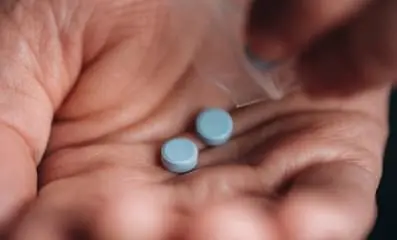
The Role of Inpatient Mental Health Facilities
When it comes to mental health care, there are various options available to individuals seeking support. One such option is an inpatient mental health facility. These facilities provide intensive, 24/7 care for individuals experiencing severe mental health issues.
Understanding the role of inpatient care and the services provided can help you or your loved ones make informed decisions about mental health treatment. Let’s delve into the details of what inpatient mental health facilities offer and how they can make a difference.
Key Takeaways
Inpatient mental health facilities provide intensive care for individuals with severe mental health conditions. This article covers:
- Entering an inpatient facility involves a structured process to ensure individuals receive appropriate care based on their needs.
- Inpatient facilities offer a range of treatments designed to address various aspects of mental health conditions and promote recovery.
- Living in an inpatient facility involves a structured daily routine aimed at promoting stability, recovery, and well-being.
Contact us at (844) 650-0064 to learn how Indiana Center for Recovery can support you with compassionate inpatient services.

Introduction To Inpatient Mental Health Facilities
Inpatient mental health facilities are specialized centers that provide intensive care for individuals facing severe mental health challenges. These facilities offer a structured environment where patients can receive 24/7 support and medical attention. The primary purpose of an inpatient facility is to stabilize patients in crisis, ensuring their safety and well-being.
These facilities are staffed by a multidisciplinary team of medical professionals, including psychiatrists, psychologists, nurses, and social workers. Each member of the team plays a vital role in the patient’s treatment plan, offering specialized expertise and compassionate care. Together, they work to assess, diagnose, and treat mental health disorders effectively.
In today’s healthcare system, inpatient mental health facilities play a crucial part in addressing acute mental health needs. They offer a range of services, including psychiatric evaluation, medication management, therapy sessions, and structured daily activities. This comprehensive approach aims to improve patients’ mental well-being and equip them with coping strategies.
Types Of Inpatient Mental Health Facilities
Inpatient mental health facilities vary in their structure and focus, each designed to meet the specific needs of individuals. Let’s explore the different types:
Psychiatric Hospitals
Psychiatric hospitals are specialized facilities that exclusively focus on the treatment of mental health disorders. They provide intensive care for individuals experiencing acute symptoms that require 24/7 monitoring and intervention by mental health professionals.
Psychiatric Units In General Hospitals
Many general hospitals have dedicated psychiatric units that offer inpatient care alongside medical services. These units are designed to handle both physical health emergencies and acute psychiatric crises, providing a comprehensive approach to patient care.
Residential Treatment Centers (RTCs)
RTCs offer longer-term care in a structured environment. They are suitable for individuals who need intensive therapy and support beyond what outpatient services can provide. RTCs often focus on developing coping skills and preparing patients for independent living.
Crisis Stabilization Units
Crisis stabilization units are designed to intervene during acute mental health crises. These short-term facilities provide immediate assessment, stabilization, and short-term treatment. They aim to prevent hospitalization or facilitate a smoother transition to ongoing care.
Long-Term Care Facilities
Long-term care facilities cater to those who require extended inpatient programs due to chronic mental health conditions or complex needs. These facilities offer ongoing support, rehabilitation services, and a structured living environment.
Admission Process In Inpatient Facilities
Entering an inpatient mental health facility involves several steps to ensure that individuals receive appropriate care tailored to their needs. Let’s dig into these steps:
Criteria For Admission
Admission criteria vary but generally include factors such as acute symptoms, risk of harm to self or others, inability to function independently, or lack of improvement with outpatient treatment. These criteria help determine if inpatient care is necessary for safety and effective treatment.
Initial Assessment
Upon arrival, patients undergo an initial assessment conducted by psychiatric professionals. This assessment evaluates the individual’s mental health status, medical history, and current symptoms. It helps determine the appropriate treatment plan and level of care needed during their stay.
Voluntary Vs. Involuntary Admission
Voluntary admission occurs when individuals seek treatment willingly and consent to stay in the facility. Involuntary admission, on the other hand, may be necessary if a person poses a danger to themselves or others and requires immediate intervention. Legal procedures and criteria vary by state.
Treatments Offered At Inpatient Facilities
Inpatient mental health facilities provide a range of treatments designed to address various aspects of mental disorders and promote recovery. Let’s explore them:
Pharmacotherapy
Pharmacotherapy, or medication management, is a common treatment approach in inpatient settings. Psychiatrists prescribe medications to alleviate symptoms of different mental illnesses. Medications are carefully monitored to ensure effectiveness and minimize side effects.
Psychotherapy (Talk Therapy)
Psychotherapy encompasses different therapeutic approaches, including cognitive behavioral therapy (CBT), which focuses on changing negative thought patterns. Group therapy and family therapy involve sessions with peers or family members to explore relationships and develop coping skills together.
Dual Diagnosis Treatment
Dual diagnosis treatment addresses co-occurring mental health and substance use disorders (SUDs). Integrated treatment plans combine psychiatric care with addiction treatment to address both conditions simultaneously, promoting long-term recovery.
Holistic And Alternative Therapies
In addition to traditional therapies, inpatient facilities may offer holistic and alternative treatments. These can include mindfulness practices, yoga, art therapy, and acupuncture. These therapies focus on enhancing overall well-being and provide additional coping strategies.
Education And Skill Building
Education and skill-building programs equip individuals with tools to manage their mental health outside of the facility. These programs focus on coping strategies, stress management, problem-solving skills, and relapse prevention techniques to support long-term recovery.
Daily Life In An Inpatient Mental Health Facility
In inpatient treatment programs, individuals follow a structured routine. Here’s an overview of what daily life might entail in such a facility:
Routine And Schedule
Patients follow a structured daily routine that includes designated times for meals, therapy sessions, recreational activities, and rest. A consistent schedule helps create a sense of stability and predictability, which is beneficial for managing mental health conditions.
Therapeutic Activities
Therapeutic activities, such as individual therapy sessions, group therapy, and specialized therapies like art therapy or music therapy, form a significant part of daily life. These activities help residents explore emotions, develop coping skills, and build supportive relationships with peers and staff.
Recreational Activities
Recreational activities promote relaxation and socialization. Facilities offer a variety of options such as arts and crafts, sports, outdoor walks, and games. These activities provide opportunities for patients to unwind, express themselves creatively, and build connections with others.
Nutrition And Wellness
Nutritious meals are provided to support physical health and recovery. Dietary needs and preferences are taken into account to ensure balanced nutrition. Wellness activities such as mindfulness exercises or relaxation techniques further enhance residents’ overall health.
Discharge Planning In Inpatient Mental Health Facility
Discharge planning in an inpatient facility involves several steps to prepare the patient for life outside the facility. Let’s explore these steps:
Preparing For Discharge
Preparing for discharge involves evaluating the patient’s progress and readiness to leave the facility. This includes final assessments, reviewing treatment progress, and discussing any remaining concerns. Patients receive guidance on what to expect after discharge and how to handle potential challenges.
Aftercare And Follow-Up Plans
Aftercare and follow-up plans are essential to maintain progress made during inpatient treatment. This includes scheduling outpatient therapy sessions, medical appointments, and support group meetings. Patients may also receive a detailed plan for managing medications and coping strategies to use at home.
Community Resources And Support Systems
Community resources and support systems play a vital role in ongoing recovery. Patients are provided with information about local support groups, mental health organizations, and community services. These resources offer additional support and help patients stay connected with a supportive network.
Frequently Asked Questions (FAQ)
Inpatient psychiatric hospitalization is when a person stays in a hospital to receive intensive mental health care. This happens when someone is in crisis, such as feeling suicidal, having severe anxiety, or experiencing hallucinations. Patients get 24/7 care from doctors, nurses, and therapists. The goal is to stabilize their condition, provide medication, and create a treatment plan. It’s a safe space where patients can focus on recovery without outside stress.
To admit yourself or a loved one to an inpatient mental health facility, you typically need to contact the hospital directly or go through the emergency department if it’s urgent. A doctor or mental health professional can also help with the admission process. You’ll need to provide information about the person’s condition and insurance details. The hospital staff will guide you through the necessary paperwork and procedures to ensure proper admission and care.
In an inpatient facility, patients follow a structured daily schedule. This includes regular mealtimes, therapy sessions with counselors or psychiatrists, group activities like art or exercise, and time for personal relaxation. There are also periods for medication distribution and medical check-ups. Each day aims to support recovery by providing a balanced routine of therapeutic activities and personal care, helping patients stabilize and work towards their mental health goals.



